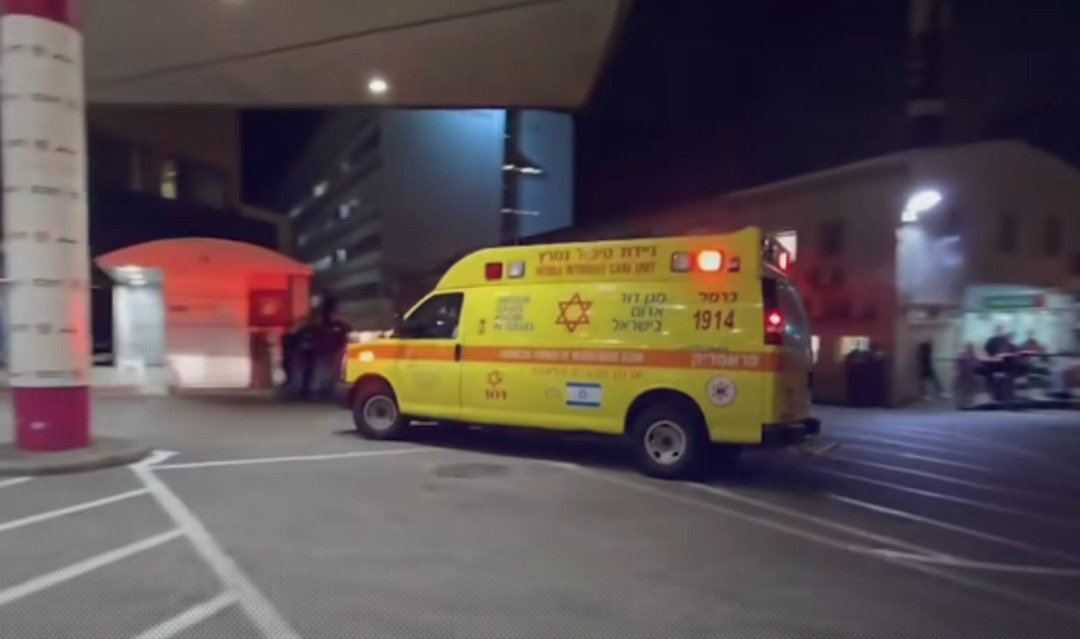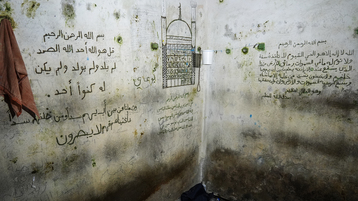-
Unprecedented Breach: Hezbollah's Devastating Drone Attack on Israeli IDF Base Raises Alarms

After the Israeli army experienced its largest single-day losses since the war began over a year ago, questions are being raised about how a Hezbollah drone infiltrated a military base during the most intense attack to date known as the "Benyamina Assault." This incident has sparked concerns about Israel's failure to intercept the drone, an unprecedented event for one of the most formidable militaries in the Middle East.
The Israeli military is currently investigating how the drone successfully reached its target, managing to evade radar detection and bypass alarm systems. They are also looking into possible human error or negligence. Meanwhile, Hezbollah claims the drone used in the attack is a new type that has not been previously utilized and is unknown to the Israelis.
The strike targeted a restaurant within a military base in Benyamina, south of Haifa, leading to the deaths and injuries of dozens of Israeli officers and soldiers gathered for dinner. Military expert Ismail Abu Ayoub describes the Benyamina attack as a "qualitative blow" for several reasons.
In an interview with Al Hurra, he stated that "the attack proved that no air defense system can identify and intercept targets 100 percent of the time. In the world of weaponry, surprises and unexpected developments are always possible."
He further explained that the drone used in this attack could potentially be made from materials that radar cannot detect, such as Bakelite, fiberglass, or plastic, indicating a design that limits radar reflectivity. “This drone might be equipped with a motor that does not emit infrared rays, perhaps a small electric motor. Another factor contributing to the drone’s success in reaching its target may be its study of areas with reduced radar detection,” he noted.
Abu Ayoub also mentioned that the drone's size might have also played a role in misleading radar systems, stating that "a smaller reflective surface might allow it to evade detection."
He cautioned that there might have been human errors by military personnel operating air defense systems, suggesting that the drone may have been classified as a friendly aircraft rather than an enemy one.
The significance of this strike lies in the fact that the targeted restaurant was within a military base while officers and soldiers were having dinner, marking it as a distinguished military operation.
He highlighted that air defense systems could be deceived by launching certain rockets to distract attention away from the drones, and there have been failures in systems such as the Iron Dome, David's Sling, and even the Patriot and Arrow systems.
Moreover, he pointed out that drones can operate at low altitudes, making them harder to detect by radar systems. “When a target is not detected, alarm systems do not activate,” he explained.
The military expert affirmed that “drone warfare has become critically important on the battlefield, as demonstrated in the Russian-Ukrainian conflict, and now in the conflict between Hezbollah and the Israeli army.”
Hezbollah, designated as a terrorist organization by the United States and other nations, stated in a release late Sunday into Monday that it targeted "one of the elite brigade camps (Golani) in Benyamina, south of Haifa, unnoticed by many settlers."
According to the group, "In a qualitative and complex operation, the rocket force launched dozens of missiles toward various targets in Nahariya and Akka to engage Israeli air defense systems while simultaneously releasing swarms of diverse drones, some being used for the first time, toward several areas in Akka and Haifa. The drones successfully breached Israeli air defense radars without detection and reached their target in a training camp for the elite Golani Brigade in the Benyamina region, south of Haifa."
**Military's Account**
The Israeli army announced late Sunday into Monday that four of its soldiers were killed in “a drone attack that penetrated the airspace from Lebanese territory and exploded at a military training base” near Benyamina in central Israel.
The attack injured 58 soldiers, with seven in critical condition, nine in moderate condition, and the rest sustaining minor injuries.
Israeli Chief of Staff Herzi Halevi remarked on Monday that the attack was "hard and painful."
He stated, “We are at war, and an attack on a training base in the home front is serious and has painful results,” while inspecting the base.
Israeli army spokesperson Daniel Hagari commented on Monday, saying, "We will study and investigate the incident of a drone penetrating the base without warning. The threat of drones has been facing us since the beginning of the war, and we are required to provide better protection. We will investigate this incident, learn, and improve."
From the army's investigations, it has become clear that the drone penetrated into the dining area of the Golani base during dinner time without activating alarms, resulting in a significant number of casualties.
According to defense officials, two drones were launched from Lebanese territory over the northern maritime area, one of which was intercepted near Nahariya, while the other disappeared and has not been located. The drone was not detected by any detection or warning
You May Also Like
Popular Posts
Caricature
BENEFIT Sponsors Gulf Uni...
- April 17, 2025
BENEFIT, the Kingdom’s innovator and leading company in Fintech and electronic financial transactions service, has announced its sponsorship of the “Innovation and Sustainable Technology Solutions Competition (GU - IST Solutions), hosted by Gulf University at its main campus.
This strategic sponsorship reflects BENEFIT’s active role in advancing technological innovation and fostering sustainable solutions to future challenges. It also seeks to empower Bahraini youth by enhancing their skills, capabilities, and competitiveness in innovation and solution development—contributing meaningfully to the broader goals of sustainable development across all sectors.
As part of BENEFIT’s active involvement in the competition, the company has announced that Hanan Abdulla Hasan, Senior Manager of Public Relations and Communication, will serve on the competition’s supervisory committee. Her upcoming participation reflects BENEFIT’s forward-looking commitment to championing academic and professional excellence.
Commenting on the occasion, Hanan Abdulla Hasan, Senior Manager of Public Relations and Communication at BENEFIT, said, “We are privileged to support this pioneering initiative, which aligns seamlessly with BENEFIT’s enduring commitment to fostering innovation and nurturing the potential of Bahrain’s youth. Our participation is rooted in a deep sense of social responsibility and a firm belief in the pivotal role of innovation in shaping a sustainable future. Through such platforms, we seek to empower the next generation with the knowledge, skills, and foresight required to develop impactful solutions that address future challenges, in line with the United Nations Sustainable Development Goals 2030.”
Dr. Aseel Al Ayash Dean of the College of Engineering in Gulf University commented, “We extend our sincere gratitude to BENEFIT for their generous sponsorship and support of the Innovation and Sustainable Technology Solutions Competition. This contribution plays an instrumental role in helping us achieve the strategic goals of this initiative, namely, cultivating a culture of innovation and sustainability, encouraging efforts that address the imperatives of sustainable development, and enhancing the practical and professional capabilities of our students and participants.”
The event will bring together a diverse spectrum of participants, including secondary school students, university undergraduates, engineers, industry professionals, entrepreneurs, academic researchers, and subject matter experts representing a wide range of disciplines.
The competition seeks to inspire participants to develop and present innovative, sustainable technologies aimed at addressing pressing environmental, social, and economic challenges. It encourages the formulation of business models that integrate advanced technological solutions with core principles of sustainability. Moreover, it serves as a platform for emerging leaders, entrepreneurs, and innovators to contribute to the advancement of the Sustainable Development Goals, promote the ethos of responsible technology, and demonstrate its transformative potential across various sectors.
Attendees will have the opportunity to view a series of project presentations submitted by participants, covering diverse areas such as eco-friendly product design, smart and sustainable innovations, renewable energy technologies, water conservation and management, waste minimisation and recycling, green architectural solutions, and sustainable transportation systems. Outstanding projects will be formally recognised and awarded at the conclusion of the event.
opinion
Report
ads
Newsletter
Subscribe to our mailing list to get the new updates!






















